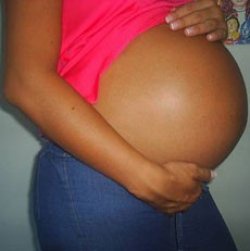- Home - News
- TWI News | TV
- Polls
- Year In Review
- News Archive
- Crime & Punishment
- Politics
- Regional
- Editorial
- Health
- Ghanaians Abroad
- Tabloid
- Africa
- Religion
- Election 2020
- Coronavirus
- News Videos | TV
- Photo Archives
- News Headlines
- Press Release
Regional News of Tuesday, 25 November 2014
Source: starrfmonline.com
Zuarungu pregnant women treated on the floor

Pregnant women seeking both antenatal and post-natal care services at the Zuarungu Health Centre in the Upper East region are compelled to receive attention on the floor.
Starr News understands the sorry state of the women is as a result of acute shortage of beds at the health centre. Also, authorities at the centre have expressed fears that women in labour at the facility could contract tetanus because the available beds in the labour wards are said to have become too rusty for use.
The facility does not admit patients at the moment, Starr News checks reveal. It only detains clients when necessary, and refers them when critical. The detention ward with the highest number of beds has just two. Besides, some of the delivery beds in the labour wards have become so rickety that those in charge of the facility now tie them with rope to keep them balanced to avoid any complications, our investigations can reveal.
Starr News can confirm that the situation has remained so for over five years now.
“At the moment, we have two labour cases. The other bed over there,” the Nursing Officer in charge of Labour Wards at the centre, Madam Scholastica Ayamdoo, told Starr News, pointing at an old bed in a labour room. “When a client lies on it, it jerks. And if a client is on it, you can see how we struggle with that bed. The other one, too, is so rusty that you can get tetanus from it.”
She added: “When we must detain more people than the beds we have, then you find people lying on the floor. I came and met things like that in 2009. I’m told these delivery beds have been there since the day they built this place.”
Meanwhile, the Participatory Action for Rural Development Alternatives (PARDA), a non-governmental organisation, has observed that Ghana “is not on track” to meet Millennium Development Goals (MDGs) four and five due to what it describes as “slow progress” in improving child and maternal health.
To help in the ongoing efforts to meet these targets, PARDA in conjunction with two aid agencies, Zochonis and Oxfam, has donated six delivery beds, 120 boxes of disposable gloves, 12 baby weighing scales, 12 mackintoshes, 26 disposable gowns and six solar lamps not only to the Zuarungu Health Centre but also five other facilities in the Upper East region.
The other facilities are the Tanga Health Centre and the Sapeliga Health Centre in the Bawku West District, the Sumbrungu Health Centre in the Bolgatanga Municipality as well as the Naaga Health Centre and the Gia Health Centre in the Kassena-Nankana Municipality. Presenting the items at the Upper East Regional Health Directorate, the Country Director of PARDA, Dr. Michael Wombeogo, called for new methods of collaboration among public and private sectors to help reduce infant and maternal deaths in Ghana.
“We need to tap into the vast potential of all stakeholders both private and public healthcare providers to deliver high-quality, affordable and accessible care to those at highest risk of maternal and child mortality,” Dr. Wombeogo said.
He added: “The challenge, however, is to ensure active compliance and firm commitment beyond talking, to actualisation of support on a sustained bases and not one-off grants of donors, governments, multilateral agencies and private foundations. PARDA has set out to understand the complexities and challenges in achieving zero maternal and child mortality in the Upper East Region and Ghana at large and, therefore, recommends ways of overcoming barriers hindering growth and sustained healthcare delivery for the improvement of maternal and child health outcomes in rural environments of Ghana, particularly in the Upper East Region.”
Receiving the items, the Bolgatanga Municipal Director of Health, Dr. Mensah Afful, described the donation as a timely intervention, particularly as the package includes baby weighing scales which he said will help prevent wrong guesses of babies’ weights at health facilities.
Ghana, alongside the rest of the world, is expected to attain by 2015 the MDGs, particularly 4 and 5. The MDGs four and five seek to reduce child mortality rates and to improve maternal health respectively.










